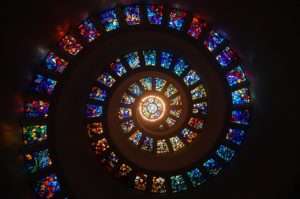An antique is an object which belongs to a past era valued for its artistry, craftsmanship, rarity and age. The term originates from the Latin word *antiquus* which means *old* or *ancient*.
Antique experts and collectors have different factors in considering or defining antique, but a common denominator is the age of the items. An object has to be made from an earlier period than the present. Moreover, an object has to be at least 100 years old to qualify as antique.
Other antique experts and collectors regard a hundred year old object not antique enough compared to an item that is at least 300 years old. An antique item in one country may not be considered antique in another country at all. Thus, defining what antique also varies from person to person or from place to place.
Aside from the age of a piece, some antique experts would only describe an object as antique if it is made of the highest quality and features a striking ors one-of-a-kind design.
Antiquing Defined
Antiquing is the art of antique collection. It involves the process of shopping, identifying, negotiating, bargaining and buying so called antique items. Antiques may range from pieces of furniture such as a table, chair, desk, or dresser among others; a piece of jewellery; kitchen pieces such as tableware, dinner sets or pots; sculptures; paintings; maps; coins; stamps; books; other home pieces such as clocks; and carpets as well. Antique furniture is one of the most commonly collected items because of its practical uses.
Antiques can be made of varied materials such as fabric, wood, porcelain, ivory or glass. Antiques are sold in antique shops all over the world. The internet is also a rich source of information for antique collectors. Several websites pertain to antiques which are useful for antique collectors, both old and new.
Antique collection depends on the interests and preferences of antique collectors. Some antique collectors prefer to collect antiques of a specific period only. Mostly, devoted antique collectors spend considerable time and money to acquire a piece to add in the collection.
Antiquing is indeed an expensive hobby but other antique collectors purchase antiques for potential resale and antiquing also refers to the process of making an object appear antique.
Antiques and its Purpose
Antiques are significant artefacts of the past which help historians and archaeologists from understanding the earlier period of human history. All antiques are valuable because these objects represent the past. However, some are considered priceless because they are vital in the recognition and education of the history of a specific place in a specific time so these antiques are placed in museums. Other antiques can be bought in various antique shops for the satisfaction of antique collectors. Antiques are also considered heirlooms hence, also priceless.
Monetary Value of Antiques
The value of antique depends on the number of items available in the market, the condition of the item, and the amount that collectors would pay for it.
Antique appraisal, or the process of determining the value of antiques, is essential to every antique collector. Finding a qualified antique appraiser requires meticulous research. Antique appraisers have different specialization on antiques. An appraiser whose forte is on antique ceramics may not be able to provide valuable details on antique jewellery.
It is also important to note that some pieces of antiques are recommended for antique restoration while others are more valuable as they appear to be. A professional antique restorer provides expert help in determining what needs to undergo essential restoration to add more value to the antique and restore it to its original appearance and function.





